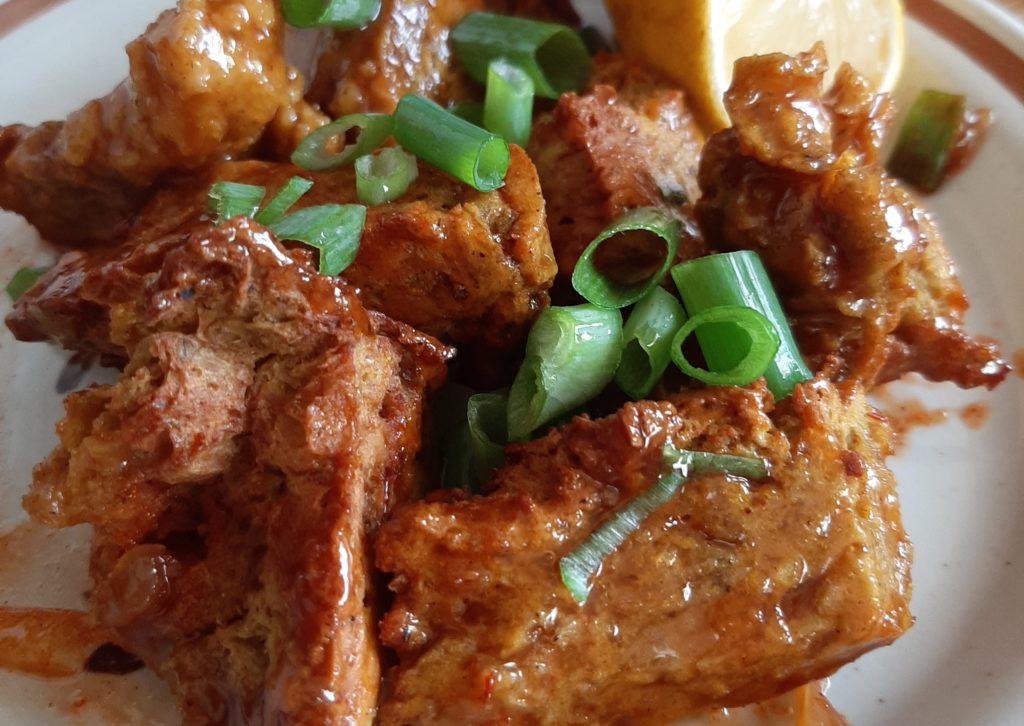“Let me ask you a question,” my mother queried me at lunch one day, “If you are against eating meat because it comes from animals, why do you eat veggie dogs?” The question is a common one levied by nonvegans hoping to “catch” vegans behaving inconsistently with their morals, but, in this case, my mom was really just curious.
My answer? We might ask the reverse of the flesh-eater. If one is in favor of eating “meat,” why would they eat flesh-based hot dogs? Why not gnaw on a joint of flesh directly? Veggie dogs and flesh dogs are both essentially protein links that are heavily seasoned and conveniently shaped for easy and tasty eating. Neither of them look, smell, or taste very much like a pig’s corpse.
That said, the ubiquitousness of mock meats is culturally relevant in the same way that pornography is to women. The mock meat industry and the pornography industry exist as symbolic representations of violence against vulnerable groups. The consumption of these products has become detached from the actual harm women and other animals experience on film sets and in slaughterhouses (respectively), but the prevalence of these products normalizes sexist and speciesist oppression. There is reason, then, to be at least somewhat critical of mock meat as a cultural matter. Purchasing a McPlant vegan burger from McDonalds, for example, could symbolically support hamburger culture and the notion that Nonhuman Animal bodies are food.
But is this a battle worth fighting? Mock meats do not take up a huge part of the vegan diet, and most people who remain vegan long enough transition off of them. Mock meats and analogs are usually marketed to flexitarians. For that matter, mock meats, while convenient, are frequently expensive and unhealthy. For those living in food deserts and underserved communities, they’re also difficult to source.
It is also likely that, in the future, mock meats will become culturally detached from the Nonhuman Animals they are supposed to be mimicking. The objectification and commodification process is a sophisticated one that easily removes the “person” from the product. For most consumers who have not had their consciousness raised (which is true of most nonvegans), Nonhuman Animal products are already shaped and flavored in a way that removes them from the beings they once were. Few are consciously aware of the pig behind the pork, for instance.
Few people really, truly do think about what’s in processed food. Food consumption is a socially constructed behavior. Foodways are structured to encourage mindless eating, eliminate critical thinking, and manipulate our choices. If this happens so seamlessly for actual animal products, then plant-based analogs will likely also absorb into unconscious consumption patterns.
Most mock meat products (like “real” meat products), are shaped, flavored, and textured to encourage consumption. They no more resemble Nonhuman Animals than potato chips resemble potatoes or fruit punch resembles fresh fruit. It is all more or less processed junk that appeals to the human predilection for fat, sugar, and carbohydrates.
I would be remiss, finally, if I were to overlook the cultural role of mock meats outside of the West. Buddhists have been creating soy- and wheat-based protein products for centuries. It is a practice also based on ethics, and mock “meats” are understood to be foundational to living non-violently. Western markets may have corporatized plant-based proteins (and The Vegan Society actually encourages the development of animal-free alternatives),1 but, long rooted in Asian traditions, their history is much older. A sweeping rejection of mock meats as inherently unethical runs the risk of ethnocentrism.
So, to answer your question, Mom, if we’re talking about mock meats that strongly resemble the corpses of other animals, this is problematic in the context of a deeply speciesist society. However, if we are talking about chunks of protein that are shaped and flavored for palatability and don’t particularly resemble anyone, then these are foods we probably do not need to be especially worried about.
1. The definition of veganism according to The Vegan Society (emphasis added): “A philosophy and way of living which seeks to exclude—as far as is possible and practicable—all forms of exploitation of, and cruelty to, animals for food, clothing or any other purpose; and by extension, promotes the development and use of animal-free alternatives for the benefit of humans, animals and the environment. In dietary terms it denotes the practice of dispensing with all products derived wholly or partly from animals.”

Readers can learn more about the politics of veganism in my 2016 publication, A Rational Approach to Animal Rights.
Receive research updates straight to your inbox by subscribing to my newsletter.

